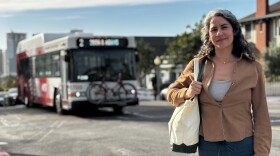This week in Iraq started with a car bomb exploding in the Baghdad Shiite slum of Sadr City. As the week neared its end, at least 25 people killed and 30 wounded when a truck laden with explosives and chlorine gas blew up west of the city of Ramadi.
Last Saturday in Sadr city, five iraqis were killed when a car bomb blew up in a parking lot outside a hospital. Men collected fragments of the vehicle, flung in every direction with the blast. They piled the pieces into a heap as television cameras recorded the scene.
Sadr City is the domain of Shiite militiamen loyal to cleric Muqtada al-Sadr. The people here blame Prime Minister Nouri al-Maliki and his latest security push in Baghdad for this attack. A local sheik, Ali Hatem al-Rubaie, says the militiamen may have gone underground to avoid capture, but they are the only ones who can protect Sadr City.
On the same day, car bombs in Hilla, south of baghdad, and Kirkuk, in the north, each killed two Iraqis. That same Saturday evening, a group of laborers traveling home south of Kirkuk came under fire. Ten were killed, and just one survived.
The joint United States-Iraq security push in Baghdad was designed to create a window for Iraqi politicians to meet and work without having to focus on the daily violence.
But as Saturday ended, Iraq's justice minister Hashim al-Shibli resigned from the so-called unity government, telling Arabiya Television that he could no longer participate in a cabinet he claimed was not acting on important issues.
A spokesman for Shibli's political party denied the resignation was prompted by the government's decision to resettle Arabs from the northern city of Kirkuk. That's been a key demand of Iraq's Kurdish leaders, who insist Kirkuk should be the capital of an autonomous Kurdistan.
Last Sunday was a holiday, the Prophet Mohammed's birthday. Sunni politician Tariq al-Hashimi used the occasion to call on Iraq's Sunnis and Shiites to forgive killers from both sides, and try to live together again as one nation.
But the killings continued. Five Iraqis died in an explosion in a marketplace north of Tikrit.
Monday brought more of the same. Car bombs killed Iraqis in Kirkuk and Baghdad. In a town in Diyala Province, just northeast of the capital, three demonstrations converged into one as locals protested U.S. military operations in the area.
There was still little movement on the political front. On Tuesday, Parliament met and again failed to take up the new draft law on de-Baathification. The measure is considered crucial to placating Iraq's Sunnis, who largely supported Saddam's Baath political party.
On the same day, car bombs killed at least eight in the capital. Baghdad's morgue reported receiving 43 bodies. And a bombing in Baya, a Baghdad neighborhood, killed two civilians.
On Wednesday, Iraqi government officials and lawmakers were supposed to meet in Dubai to discuss changes to the oil law, another legal step deemed necessary to quelling sectarian tensions. The meeting was postponed without explanation until later this month.
In the Shiite holy city of Karbala, 93 unidentified bodies arrived for burial from various parts of the country.
Officials announced that a new security campaign had begun in the northern city of Mosul, where car bombs wounded at least seven Iraqi policemen.
On Thursday, U.S. miltiary spokesman Maj. Gen. William Caldwell acknowledged that, while the number of attacks in Baghdad had dropped, the number and severity of attacks elsewhere in Iraq was on the rise. He said U.S. forces would be moved to tackle the new trouble spots.
It was also a deadly day Thursday for British forces operating in the southern city of Basra. Four were killed by a powerful roadside bomb while driving back to their base. Their Kuwaiti civilian translator was also killed, and another was wounded. Two other British soldiers were killed days earlier, making it one of the deadliest weeks for British troops since the 2003 invasion.
At least 20 American soldiers were also killed this week.
On Friday, Baghdad's morgue reported a disturbing sign that sectarian violence may again be on the rise in the capital. The number of bodies delivered to the morgue has steadily increased each day this week. The toll on Friday was 72.
Copyright 2022 NPR. To see more, visit https://www.npr.org. 9(MDAzMjM2NDYzMDEyMzc1Njk5NjAxNzY3OQ001))







